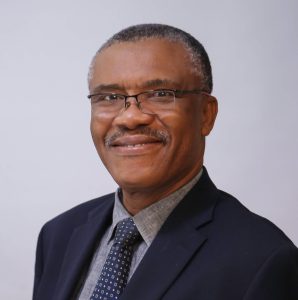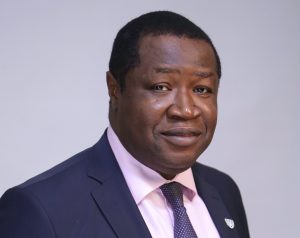Overview
In today’s global and dynamic business environment, the need to quickly deliver on new business initiatives is becoming a critical competitive success factor. Increasingly, organisations are using projects to introduce new products and innovations to the business environment. Hence, effectively managing projects, tight schedules and budget is becoming an important business imperative. Organisations need to quickly assemble human resources, focus on objective and deliver results.
The aim of this seminar is to provide valuable ideas and insights that will help those that work on projects to do a better job serving the organisation, provide value, derive enjoyment from the project, and inspire all other project stakeholders. The programme will introduce the participants to core project management principles and develop skills required for effective management of organisational projects. This course will support participants in taking their performance to a higher level of effectiveness, responsibility and leadership.
The programme offers an immersion into the knowledge and competencies for effective project management and leadership. Skills will be built up through targeted lectures, readings, presentations, peer group learning and case studies, discussed in study groups with the aim of introducing new ideas and theories that challenge participant’s existing perspectives. In the process, the participants will learn how to use project management practices to deliver value to the organisation. Emphasis is placed on the use of modern computer software package for planning and monitoring.
The programme is composed of three Learning Modules. Each module will address a set of core managerial skills required in the lifecycle of a project. The programme will comprise sessions covering the nine bodies of knowledge outlined in PMBOK® Guide: project initiation; project charter and scope; work breakdown structure; costing; scheduling; resource planning; communication; risk management; monitoring and control; stakeholder management; change management; procurement; human resource issues; and closing.
This is a management programme that is also offered by competing institutions. However, most of these competing programmes are tailored towards helping participants obtain professional certifications. The LBS version of this seminar has survived over 18 years because of our focus, structure and unique delivery approach. We employ a diversified team of experts, including practitioners and academics to deliver the programme. It is delivered in such a way that professional managers are equipped with practical skills required to lead effective project teams.
This seminar is designed for individuals who are responsible for planning, managing and monitoring projects within organisations.
Learning Objectives and Benefits
At the end of this programme, you will be have a sound knowledge of the following:
- Project evaluation and selection
- Understanding of the strategic role of projects
- Organisational concepts for projects
- Project planning and scheduling
- Cost estimation and budgeting
- Resource management
- Stakeholder management
- Risk management
- Procurement and contract administration
- Project monitoring and control
- Project governance and ethics
- Hands-on experience using Microsoft Office Project software.
Who should attend
This programme will benefit:
- Project managers and programme coordinators
- Executives, senior managers, project engineers in telecommunications, IT, and manufacturing firms
- Managers and executives who are responsible for sponsoring, evaluating or monitoring projects in the service sector (banks, insurance, healthcare, etc.)
- Partners and senior associates in architectural and engineering firms
Structure and Curriculum
Strategic Context of Projects
- Definition of project
- Introduction to project management
- Organisational context of projects
- Project charter and scope
- The project teams
Project Planning
- Work breakdown structure
- Cost estimation and budgeting
- Activity scheduling
- Resource planning and management
- Project communication
- Project quality plan
- Project risk analysis
- Project management tools
Project Execution
- Project launch – kick-off
- Monitoring and control
- Stakeholder management
- Change management
- Project procurement
- Contract administration
- Human resource issues
- Project evaluation
- Ethics in project management
- Project closing
Admission process
1. Click on the Apply Now tab
2. Select the number of participants to enroll on the programme
3. Fill in your details to complete your application
4. Request for an invoice or make an instant payment via our secured payment gateway
5. Upon confirmation of payment, a programme manager will get in touch with you at least three days before the programme commences.
Faculty

Dr. Ojadi has consulted widely for many companies (including banks, food and beverage and distribution and retail companies, and urban transport development) in the areas of procurement improvement and logistics and supply chain optimisation. He is a member of the Editorial Board of the South African-based Journal of Transport and Supply Chain Management. Dr. Frank Ojadi obtained a bachelor’s degree in Engineering Physics from the University of Ife in 1981 (now Obafemi Awolowo University), an MBA from the Maastricht School of Management, Netherlands, and PhD in Transport Economics from the Department of Transport and Supply Chain Management of the University of Johannesburg, South Africa.

Prior to his faculty appointment, Obinna Muogboh served as the Chief Executive Officer of Jess-NP Limited, a Nigerian-based manufacturing firm. He brings back to the academic world his wealth of experience in managing business in a highly competitive and challenging business environment.
Dr. Muogboh has consulted and researched various organisations in Nigeria and abroad, including multilateral agencies such as UNIDO. He is a member of the Institute for Operations Research and the Management Sciences (INFORMS). Dr Muogboh also worked at INSEAD, France as the 2009 INSEAD African Faculty fellow.
He received his M.Sc. and Ph.D. in Industrial Engineering from the University of Pittsburgh, USA. He received his B.Eng. in Electronic Engineering from the University of Nigeria, Nsukka.
